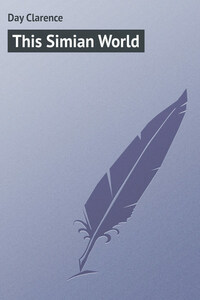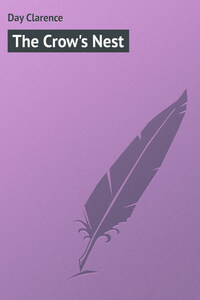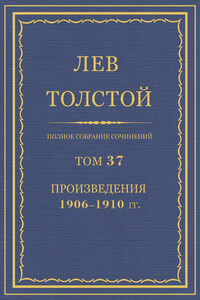Last Sunday, Potter took me out driving along upper Broadway, where those long rows of tall new apartment houses were built a few years ago. It was a mild afternoon and great crowds of people were out. Sunday afternoon crowds. They were not going anywhere, – they were just strolling up and down, staring at each other, and talking. There were thousands and thousands of them.
"Awful, aren't they!" said Potter.
I didn't know what he meant. When he added, "Why, these crowds," I turned and asked, "Why, what about them?" I wasn't sure whether he had an idea or a headache.
"Other creatures don't do it," he replied, with a discouraged expression. "Are any other beings ever found in such masses, but vermin? Aimless, staring, vacant-minded, – look at them! I can get no sense whatever of individual worth, or of value in men as a race, when I see them like this. It makes one almost despair of civilization."
I thought this over for awhile, to get in touch with his attitude. I myself feel differently at different times about us human-beings: sometimes I get pretty indignant when we are attacked (for there is altogether too much abuse of us by spectator philosophers) and yet at other times I too feel like a spectator, an alien: but even then I had never felt so alien or despairing as Potter. I cast about for the probable cause of our difference. "Let's remember," I said, "it's a simian civilization."
Potter was staring disgustedly at some vaudeville sign-boards.
"Yes," I said, "those for example are distinctively simian. Why should you feel disappointment at something inevitable?" And I went on to argue that it wasn't as though we were descended from eagles for instance, instead of (broadly speaking) from ape-like or monkeyish beings. Being of simian stock, we had simian traits. Our development naturally bore the marks of our origin. If we had inherited our dispositions from eagles we should have loathed vaudeville. But as cousins of the Bandarlog, we loved it. What could you expect?
If we had been made directly from clay, the way it says in the Bible, and had therefore inherited no intermediate characteristics, – if a god, or some principle of growth, had gone that way to work with us, he or it might have molded us into much more splendid forms.
But considering our simian descent, it has done very well. The only people who are disappointed in us are those who still believe that clay story. Or who-unconsciously-still let it color their thinking.
There certainly seems to be a power at work in the world, by virtue of which every living thing grows and develops. And it tends toward splendor. Seeds become trees, and weak little nations grow great. But the push or the force that is doing this, the yeast as it were, has to work in and on certain definite kinds of material. Because this yeast is in us, there may be great and undreamed of possibilities awaiting mankind; but because of our line of descent there are also queer limitations.
In those distant invisible epochs before men existed, before even the proud missing link strutted around through the woods (little realizing how we his greatgrandsons would smile wryly at him, much as our own descendants may shudder at us, ages hence) the various animals were desperately competing for power. They couldn't or didn't live as equals. Certain groups sought the headship.
Many strange forgotten dynasties rose, met defiance, and fell. In the end it was our ancestors who won, and became simian kings, and bequeathed a whole planet to us-and have never been thanked for it. No monument has been raised to the memory of those first hairy conquerors; yet had they not fought well and wisely in those far-off times, some other race would have been masters, and kept us in cages, or shot us for sport in the forests while they ruled the world.
So Potter and I, developing this train of thought, began to imagine we had lived many ages ago, and somehow or other had alighted here from some older planet. Familiar with the ways of evolution elsewhere in the universe, we naturally should have wondered what course it would take on this earth. "Even in this out-of-the-way corner of the Cosmos," we might have reflected, "and on this tiny star, it may be of interest to consider the trend of events." We should have tried to appraise the different species as they wandered around, each with its own set of good and bad characteristics. Which group, we'd have wondered, would ever contrive to rule all the rest?
And how great a development could they attain to thereafter?
If we had landed here after the great saurians had been swept from the scene, we might first have considered the lemurs or apes. They had hands. Aesthetically viewed, the poor simians were simply grotesque; but travelers who knew other planets might have known what beauty may spring from an uncouth beginning in this magic universe.
Still-those frowzy, unlovely hordes of apes and monkeys were so completely lacking in signs of kingship; they were so flighty, too, in their ways, and had so little purpose, and so much love for absurd and idle chatter, that they would have struck us, we thought, as unlikely material. Such traits, we should have reminded ourselves, persist. They are not easily left behind, even after long stages; and they form a terrible obstacle to all high advancement.









